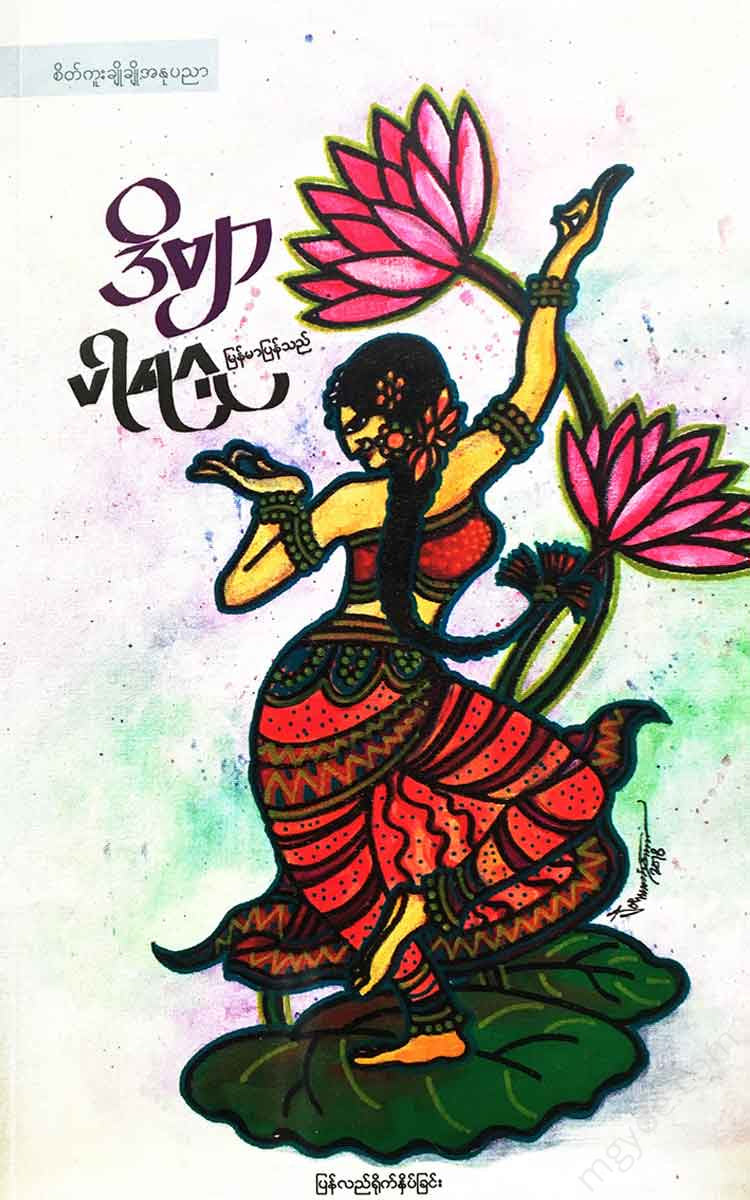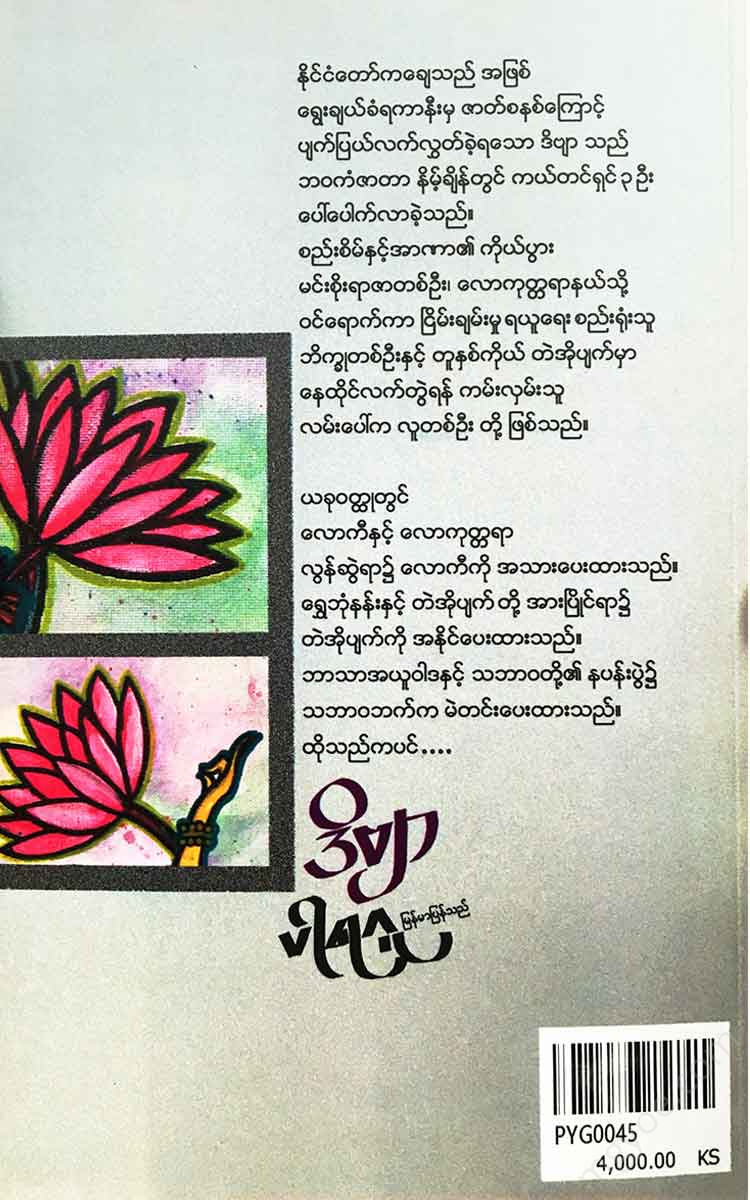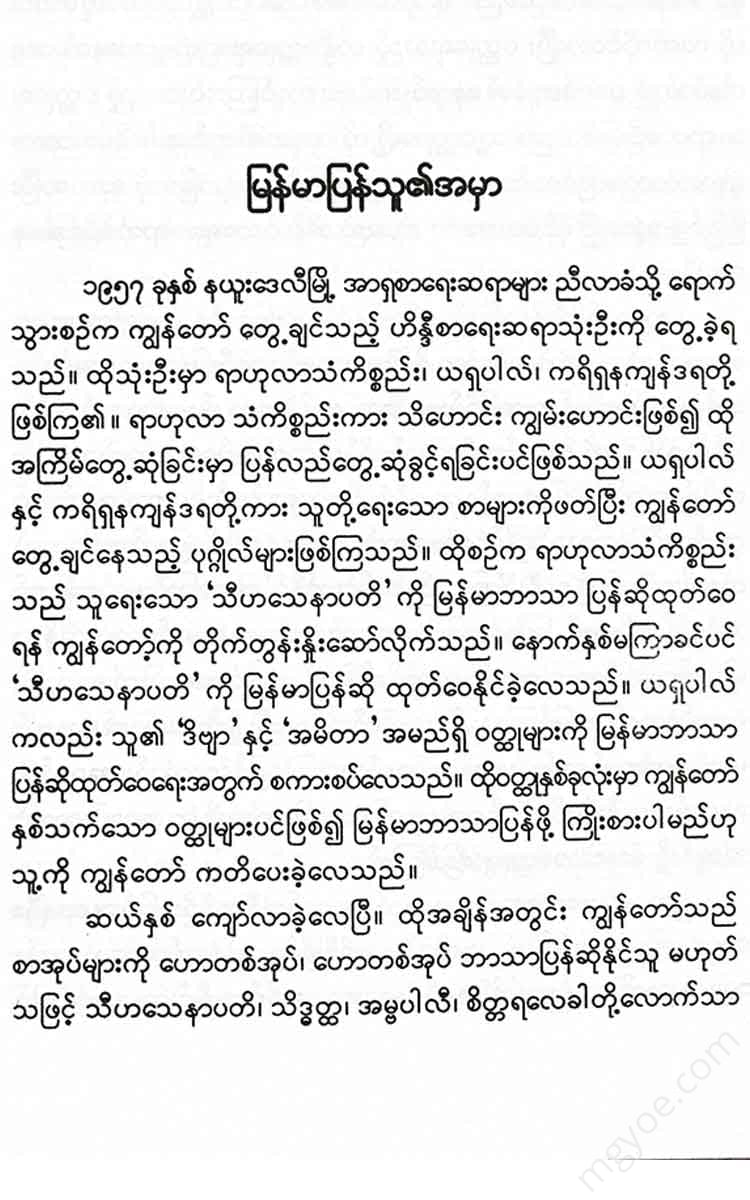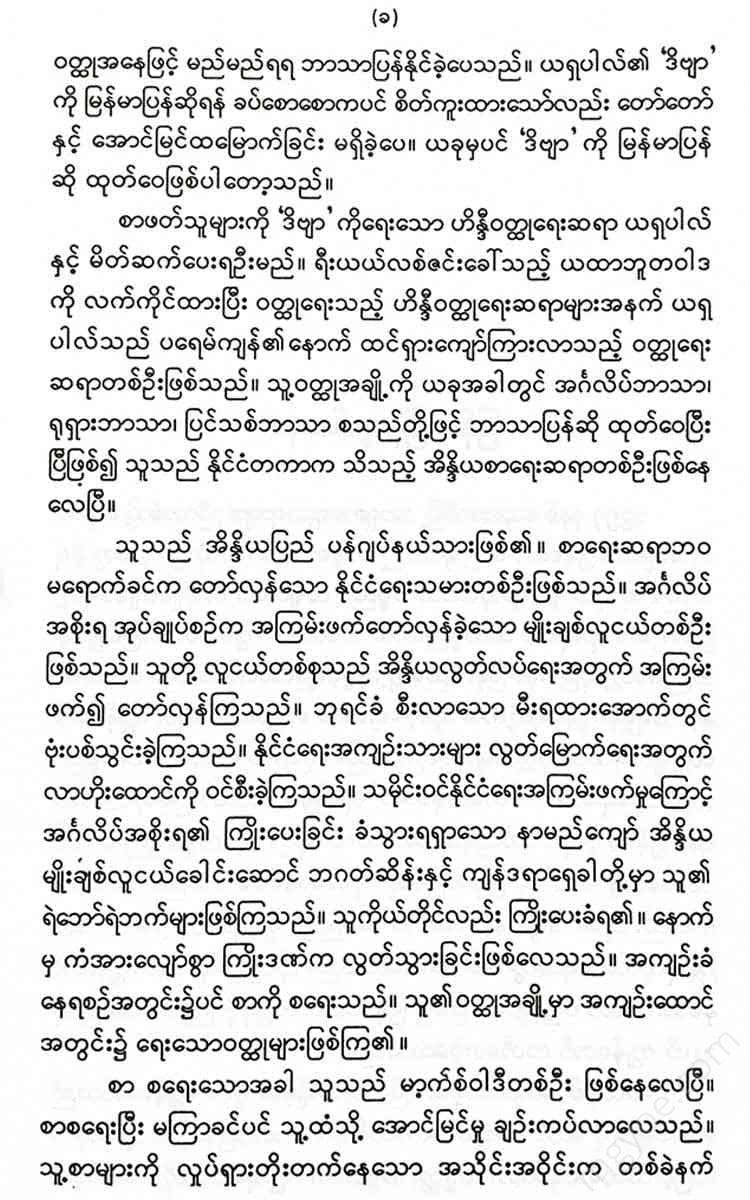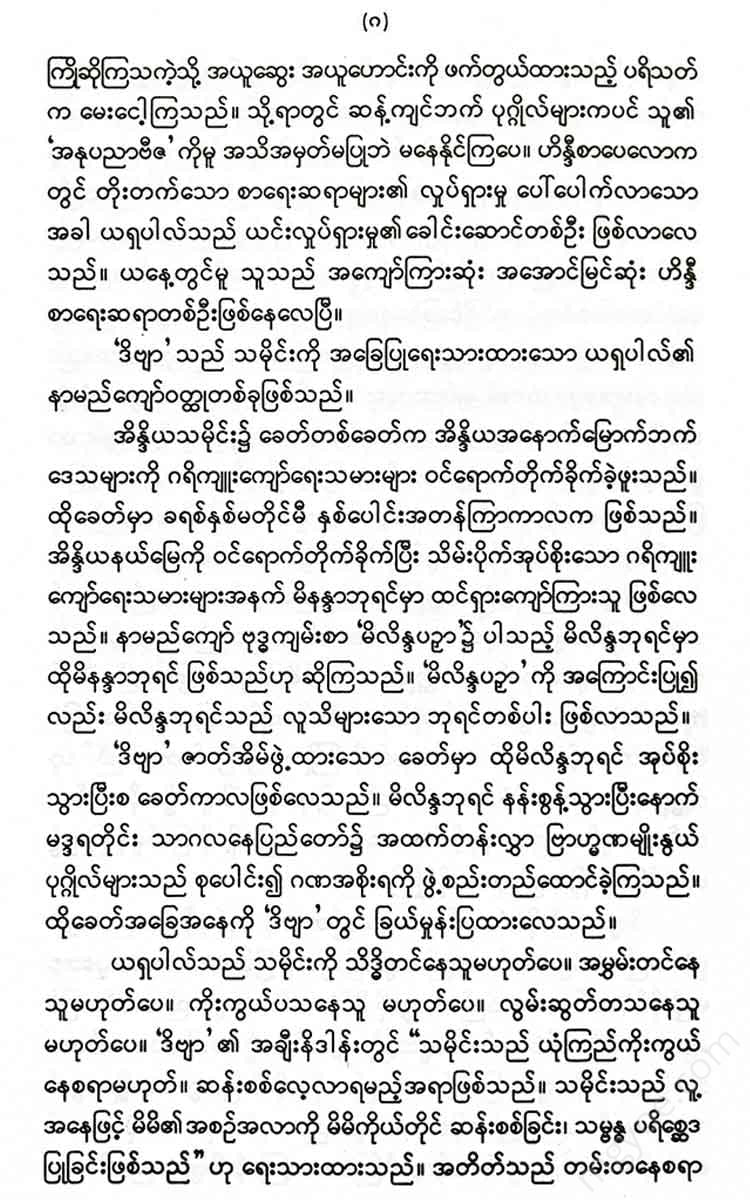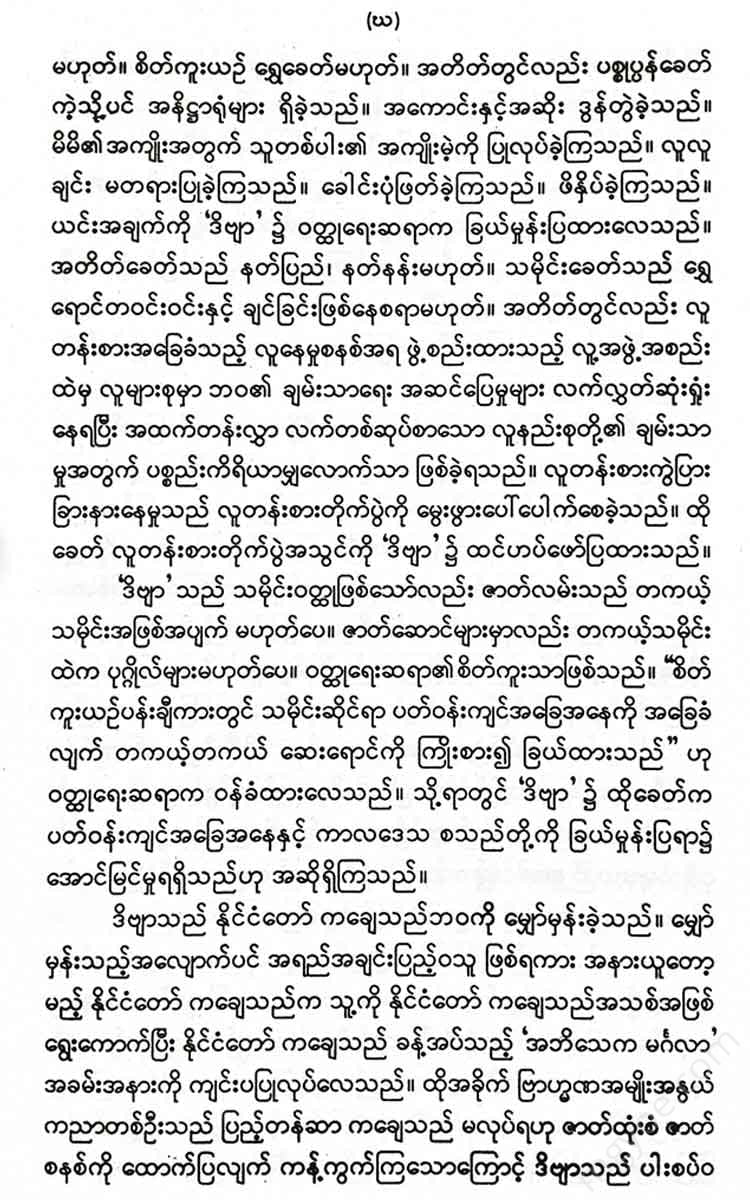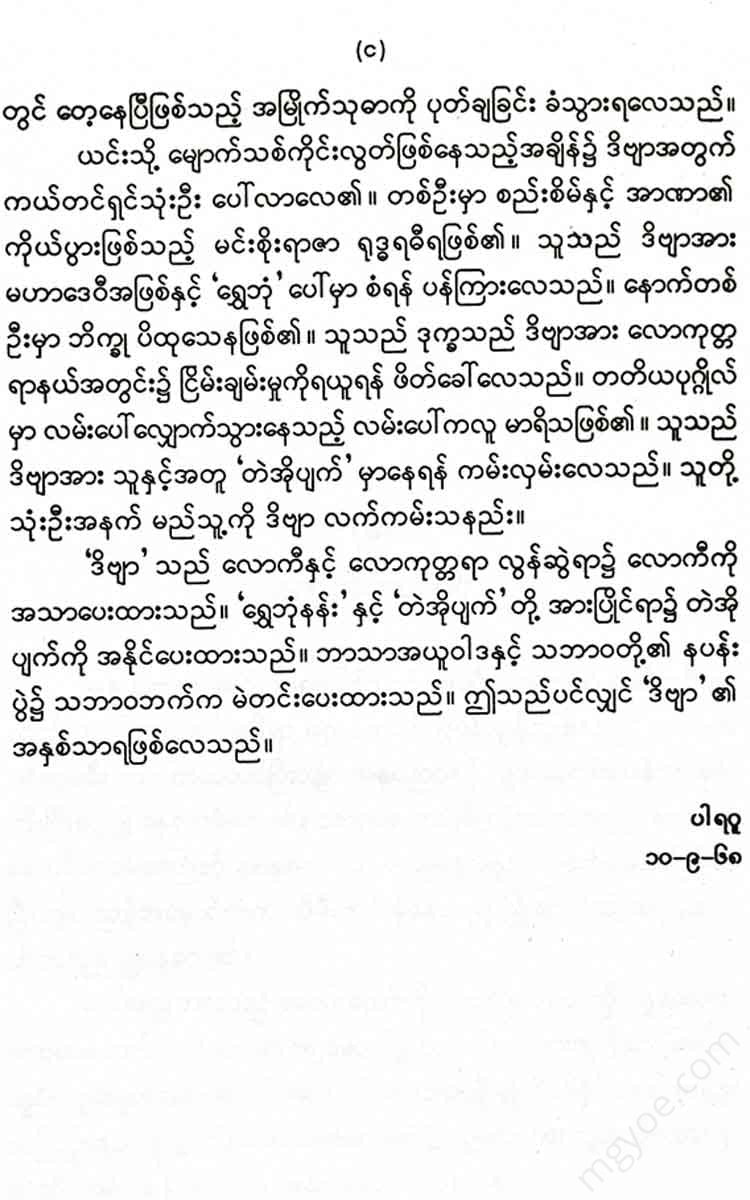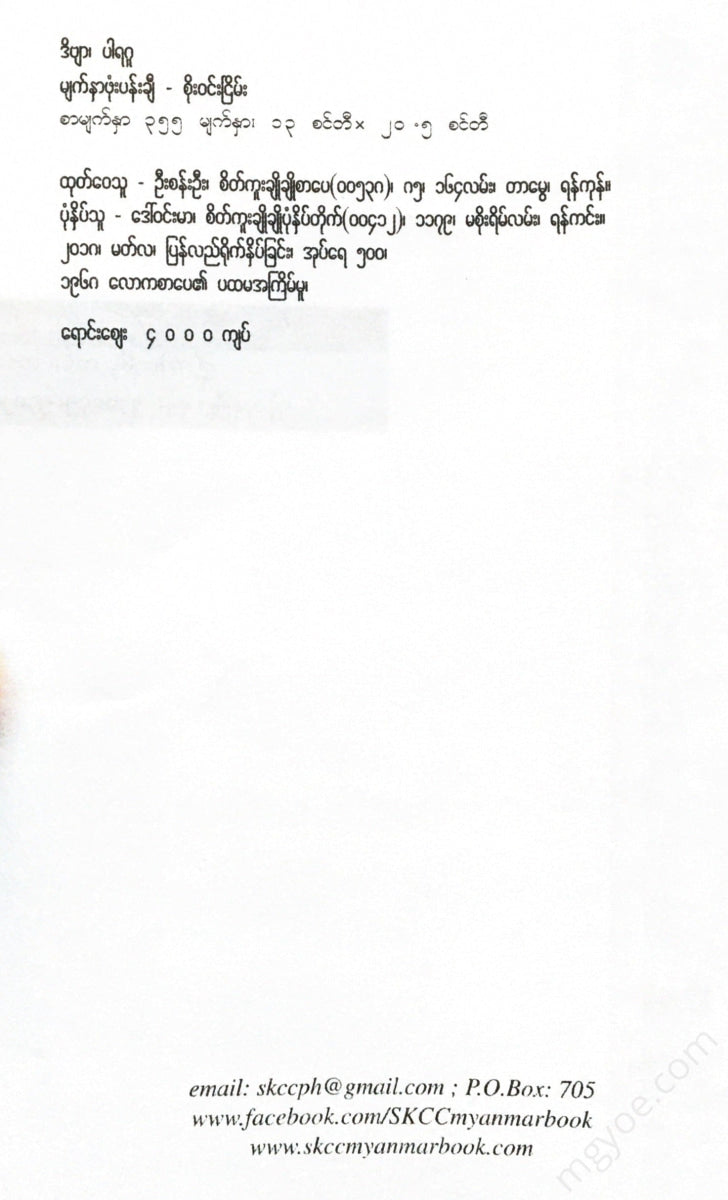စိတ်ကူးချိုချိုစာပေ
Paragu - Divya
Paragu - Divya
Couldn't load pickup availability
( 1 )
Astrological festival
The crown jewel of art, Devi Mallika, the queen of dance, died suddenly, her daughter Rusiya dying in grief, and she became weary of art and society. The entire city of Thagala, warmed by Mallika's fire for two years, remained silent and silent, like a town without oil lamps in the dark of night.
In front of the goddess Saraswati, who was holding her harp, Devi Mallika, reverent in her duty, suppressed the burning sorrow, and resolved to re-enter the human world and human society on the full moon night of Tagoo.
In the vast and beautiful Pokkarani Lake in Thagala, a large crowd of people moved like huge waves, both on the water and on the shore.
The sun was only a few feet away from setting. But no matter where you looked, the crowd was still gathering. The large pavilion for the Nakshatra Festival, which was surrounded by the crowd, looked like a small island in the middle of the river when the rains had flooded it during the rainy season. The pavilion was decorated with water pots, banana trees, shrines, and arches made of spring-blooming flowers. The surroundings were filled with various flowers, incense, and fragrances. The men with long hats on their heads and large shields on their backs were anxiously looking at the members of the Gana Hluttaw, the feudal lords, the nobles, the wealthy, and the They are guarding the places of the ladies to prevent the public from coming in.
The sun had already set below the horizon. The chariots, drawn by the most powerful and graceful horses in the Maddara Gana kingdom, and the chariots and horses, drawn by people dressed in beautiful clothes, were coming towards the pavilion along the road that had been protected in the middle of the large crowd. The master of ceremonies, standing on the steps of the pavilion, was blowing a trumpet and welcoming the guests to the Golden Festival. When the members of the Gana Hluttaw and the royal audience entered the pavilion, the master of ceremonies announced their names, lineages, and positions, and assigned them to their designated seats. The chariots, horses, The guards, after leaving the people at the entrance to the pavilion, walked clockwise around the pavilion, followed by servants holding turbans and servants wearing long robes, and stood in a line to the west.
The noblemen and women of the upper class wear clothes appropriate to the festival, according to their appearance and lineage. The Brahmins wear red turbans woven with gold thread on their heads. They wear white sandalwood on their foreheads and arms. A continuous line, visible below the flowing robes on their shoulders, stands out like a yellow sacrificial thread on the white undergarments. Their white undergarments reach down to their sandals. The Khattiyas wear beautiful clothes covered with gold. Their long, pointed noses have whiskers that protrude from their cheeks like two scorpions. Their ears, necks, arms, They wear jeweled ornaments on their wrists. They wear a tight-fitting tunic from a broad chest to a narrow waist. They wear a tight-fitting undergarment from the waist to the knees. They wear sandals from the knees to the feet. The stone sword hangs loosely at the waist. The clothes of the wealthy are very expensive but rather loose. The members of the Gana Hluttaw wear long fur coats that reach down to the knees. Some of the Yavana feudal lords wear pointed hats on their heads. They wear long, loose fur coats that reach down to the calves. On their feet, they wear sandals and sandals. Some wear “Aryan clothes.”
The dress and attire of some of the women are very beautiful. The crescent-shaped flower crowns on the hair, which are tied in various patterns with pearls, are particularly beautiful. They are fully adorned with earrings, pearls, necklaces, bracelets, and rings on their ears, necks, wrists, and fingers. They are wearing tight-fitting tunics, and their breasts are visible from above. Their full hips are visible from below. A golden belt is worn around their waist. The jeweled belt falls down between their waist and hips, clearly showing the fullness and roundness of their hips. Small gold beads are hung from the belt. Their lower part of the body, with a peacock's tail hanging from the waist belt, touches the red-painted and decorated carpets spread out under their legs, covering their feet. The fragrance of the flowers wafts across the people. They usually dress in the clothes of Aryan women, like all Greek women.
The full moon had just risen in the sky. Lamps were lit on all four sides of the stage below the pavilion and on the road. The aged Mithadasa, who had served as the great general of the Madras kingdom during the reign of the great monk Milinda, had now become the chief of the Ganapati kingdom of Sagal. As soon as the chief of the Ganapati Mithadasa took his seat, the musical instruments began to play. The master of ceremonies, who was standing at the top of the stage, blew his trumpet again and announced, “All you who have come to the golden festival, the crown jewel of the arts, the magnificent state dancer Devi Mallika, has come to the festival.”
When this announcement was made, the crowd of people, like a sea of people, rose up in a huge wave. The crowd craned their necks and looked back at the road.
The chariot, behind the men on horseback carrying torches, followed in this manner. The chariot soon reached the audience near the pavilion. The audience chanted prayers for the long life and success of Mallika Devi, the crown jewel of art. Flowers and garlands were also showered on Mallika's chariot. Many flowers and garlands, once they entered the chariot, slid down on the large pile of flowers and floated down. Mallika, with her hands clasped, smiling face, head bowed low, and eyes wide open, received the respectful homage of the audience. Upon arriving at the pavilion, the dancer Mallika received the respectful obeisances of the royal audience and took her place near the Ganapati. Mallika's chariot was followed by six chariots of her chosen female students who were to compete in the artistic competition.
The master of ceremonies blew the trumpet again.
The sound of the musical instruments stopped and the drum was struck. Before the dance, there was a plan to hold a competition of weapons skills for young men who had returned from Takshasila and Magadha after studying. Only after testing their skills in the competition would the young men be appointed to positions in the army of the Madaragana kingdom.
The master of ceremonies announced.
"Vinayasharama, the grandson of the great scholar Devashrama; Indaradeepa, the son of the great feudal lord Sabbattha; Vasudhira, the son of the speaker of the Gana assembly; Sada, the son of the chief electoral officer of the Gana assembly; Vishnesh, the son of the wealthy Samatthaka; Pithusane, the son of the wealthy Praesatha."
Six young men, dressed in the guise of warriors, wearing brown armor, iron helmets on their heads, bows and arrows slung over their shoulders, and swords girded around their waists, ascended the stage. Standing before the aged and powerful Ganapati of Maddara Gana, the great commander of the army, the six young men raised their swords to their noses and bowed their heads, making a proclamation.
"I, a native of Thagala, Madaragana, whose son I am, have been trained in the art of warfare and strategy and am ready to serve my country. I beg you to test my abilities and grant me a worthy position in the army of the country of Ghana."
The chief of the army ordered the young men to be ready for the archery competition and signaled to a soldier who was standing by. The young men had their bows ready. The soldier threw balls of different colors at the ceiling of the pavilion. The public watched the archery competition with interest. The young men shot many balls with their bows with great difficulty. The chief of the army and the judge were watching carefully to see which young man shot which ball with which arrow and at which heart. The chief of the army raised his hand and signaled to end the archery competition.
Once again, the Mahasenapati ordered the young men to take off their armor and choose a weapon of their choice. Indradeepa and Vinayasharma each chose a spear, and the other young men each chose a sword. The Mahasenapati gave the order.
“Every young man should consider another young man as his enemy and, in self-defense, should stab and injure his enemies. Stab and injure does not mean that he should stab and injure severely. No young man should use his intelligence or engage in corruption. Doing either of these will be punished by the courts of Ghana.”
The commander waved his tunic in the air, signaling the start of battle. A series of lightning bolts flashed through the pavilion. The six young men, each with their backs arched in a bow to attack the enemy, trembled like a tiger with its fangs and claws bared.
Each young man stared at the others, unblinking. The weapons in their hands flickered for a moment like a light under the ceiling, then, like a flickering flame, they returned to their hands.
The vast audience, with their eyes wide open, watched the delicate movements and movements of the warriors. Their hair stood on end as they watched. The warriors moved, swaying like blades of grass swaying in the gentle breeze. In an instant, sweat poured from their bare necks, bare arms, hairy chests, and strong backs. Blood flowed in red streaks all over their bodies. The blood mixed with the sweat and spread, turning their bodies a reddish-brown color.
At the command of the Mahasanapati, the master of ceremonies blew the trumpet, signaling the end of the martial arts competition. The young men came before the Mahasanapati to be examined. Young men Sakida and Pithusane had only two blood stains on their bodies. Young man Vishnesha had three wounds on his body.
The Maha Thanopati made the announcement after consulting with the members of the Gana Hluttaw.
“The entire audience, along with the members of the Gana Hluttaw, showed that the young Sakida and Pithuthena were truly skilled in swordsmanship and spearmanship. The wishes of the Gana Hluttaw members were fulfilled.
